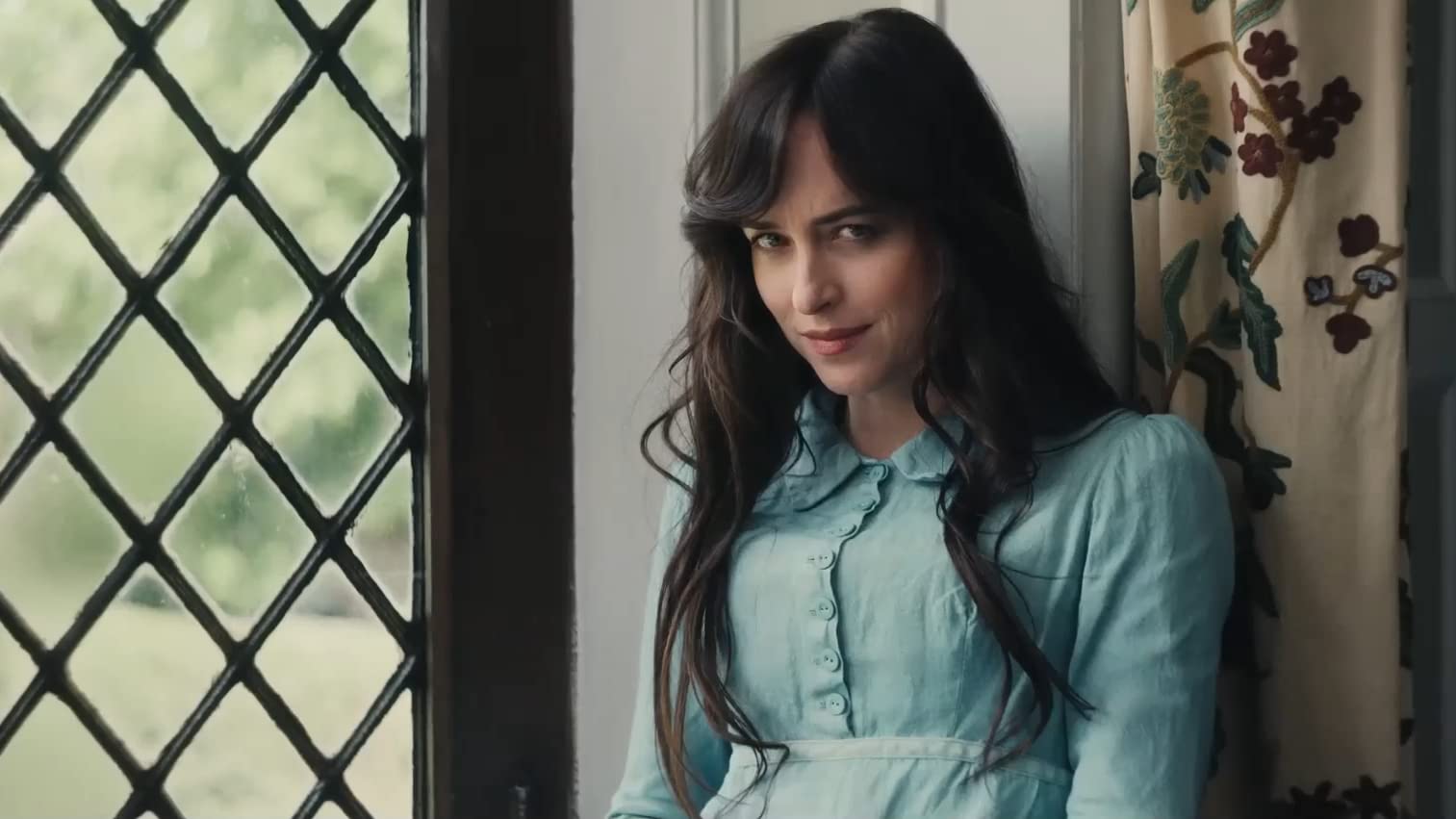A new Jane Austen movie (sort of) has just debuted on Netflix.
It has the same title (“Persuasion”) and the same characters as Austen’s novel; it has the look and elegance of the same 1817 era. Still, it’s thoroughly different: Some people will enjoy it (as I did); others have already complained.
The biggest difference is attitude: From the first moment – when we learn that the baron (Richard E. Grant) savors any reflective surface, because he can see his image – this has verbal wit. Often, his daughter Anne (Dakota Johnson, shown here) talks directly to the camera, just as Phoebe Waller-Bridge did in the award-winning “Fleabag.”
Anne is 27, teetering toward spinsterhood. Eight years earlier, a well-meaning family friend advised her to break up with Frederick Wentworth, a naval officer who had no money or standing. Now he has both, she has no one, and he’s back in town.
Much of the humor involves her empty-headed family. The dad has no grasp of finances or life. His youngest daughter is so self-centered that she doesn’t notice that Anne is talking to her in Italian; she never really listens anyway.
Anne is the middle child and thereby ignored. Like other Austen heroines, she’s smart, observant and chaste. Yes, she’s played by Dakota Johnson; but she would have several fainting spells if she ever saw Johnson’s “Fifty Shades of Grey” movies.
Wentworth is described as terribly handsome. Cosmo Jarvis, who plays him, doesn’t fit that description, but at least makes a good try at a Patrick Dempsey-type five o’clock shadow.
Henry Golding (“Crazy Rich Asians”) plays a suitor and fulfills the handsome-ness quota. He’s also part of the casting diversity, a refreshing, period-piece trend that started with “Bridgerton.”
This is a film that’s not afraid of playing with tradition. Characters bring a 21st-century awareness; at one point, they even rate each other on a 0-10 scale.
Two of the key people are new to such movie chores. Carrie Cracknell, the director, is from theater; for co-writer Alice Winslow, this is one of her first scripts.
The other writer, however, is Ron Bass. He showed with “Rain Man” that he could write a great movie; he then showed with “Waiting to Exhale” and “The Joy Luck Club” that he could capture the work of gifted female novelists.
I’m not always a fan of this notion of modernizing stories set in old England. I deeply despised “The Favourite,” for instance. But I do like the Austen resurgence.
Some people have simply used her general plots for new movies, including “Clueless” (1995) and “Bridget Jones’s Diary” (2001). Others have done a terrific job of adapting her – especially “Sense and Sensibility” (1995), the Gwyneth Paltrow “Emma” (1996) and two versions of “Pride and Prejudice” – a mini-series (1995) and a Keira Knightley film (2005), splendidly directed by Joe Wright.
This one is nowhere near that caliber, but it’s smart, attractive and entertaining. It’s biggest flaw is the abrupt ending – as if someone suddenly looked at a clock and realized the time was expiring.
But that ending is also in Austen’s novel. Hey, no one’s perfect.
